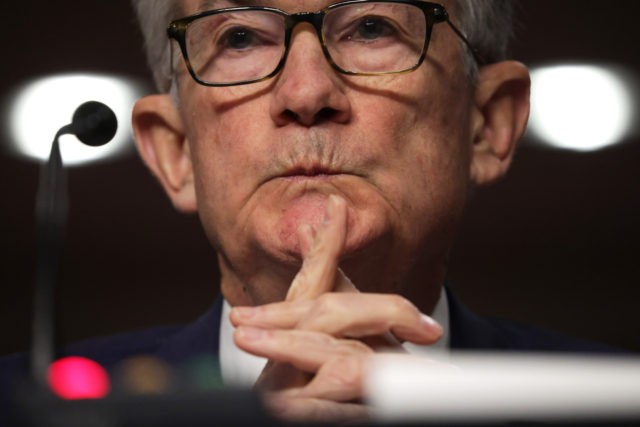Federal Reserve Chair Jerome Powell said that it is time to stop using the word ‘transitory’ to describe the high and rising inflation that has beset the U.S. economy in the first year of the Biden presidency.
Powell made the comment Tuesday in response to questions during a Senate Banking Committee hearing in Washington. Powell first used the word transitory to describe inflation this spring, when prices began to rise more than expected. At the time, Fed officials believed inflation would stay confined to a few goods that were experiencing supply chain constraints and fade over the coming months.
Since then, supply chain problems have worsened and inflation has accelerated. Fed officials and most economists now see high inflation and supply chain problems lasting well into 2022. At Tuesday’s hearing, Powell said that high and persistent inflation may mean it is appropriate for the Fed to speed up the tapering of its asset purchases.
Critics have said that the Fed’s approach risks losing control of prices. In addition to describing inflation as transitory, the Fed has adopted a new approach to inflation—known as Flexible Average Inflation Targeting, or FAIT—that allows for inflation to run above its two percent target for some time if inflation had been running lower in earlier periods so that the average over time approximates the target. At Tuesday’s hearing, Senator Pat Toomey (R-PA) criticized this approach for being too vague because it does not specify either how far above target or how long above-target inflation should be allowed to run.
“I know you believe this is transitory. But everything is transitory. Life is transitory. How long does inflation have to run above your target before the Fed decides maybe it’s not so transitory?” Toomey, the panel’s ranking member, asked.
Powell replied that the test for FAIT’s threshold has “absolutely been met now.”
“Inflation has run well above two percent for long enough that, if you look back a few years, inflation averages two percent,” Powell said. He added that had not been the case for many years prior to the pandemic when inflation typically undershot the Fed’s goals and some economists had begun to question whether the Fed was capable of raising inflation up to two percent given what appeared to be persistent deflationary pressures from around the global economy.
Powell then went on to lay ‘transitory’ to rest.
“So I think the word ‘transitory’ has different meanings to different people. To many it carries a sense of ‘short-lived.’ We tend to use it to mean that it won’t leave a permanent mark in the form of higher inflation,” Powell said. “I think its probably a good time to retire and try to explain more clearly what we mean.”
Powell’s answers to questions from senators lead many investors to the conclusion that the Fed would likely now move more quickly, in part because it views the pandemic as a greater risk to the supply side of the economy and therefore an inflationary force. Prior to the panel, investors were divided about whether references to the omicron variant in Powell’s prepared remarks were an indication that the Fed was considering accelerating the taper or whether they meant the Fed would backoff for fear of a drag on demand from a potential new wave of infections.
Stocks sold off on this hawkish interpretation of Powell’s testimony. The Dow Jones Industrial Average sank by more than 662 points, or around 1.9 percent, by midday.

COMMENTS
Please let us know if you're having issues with commenting.